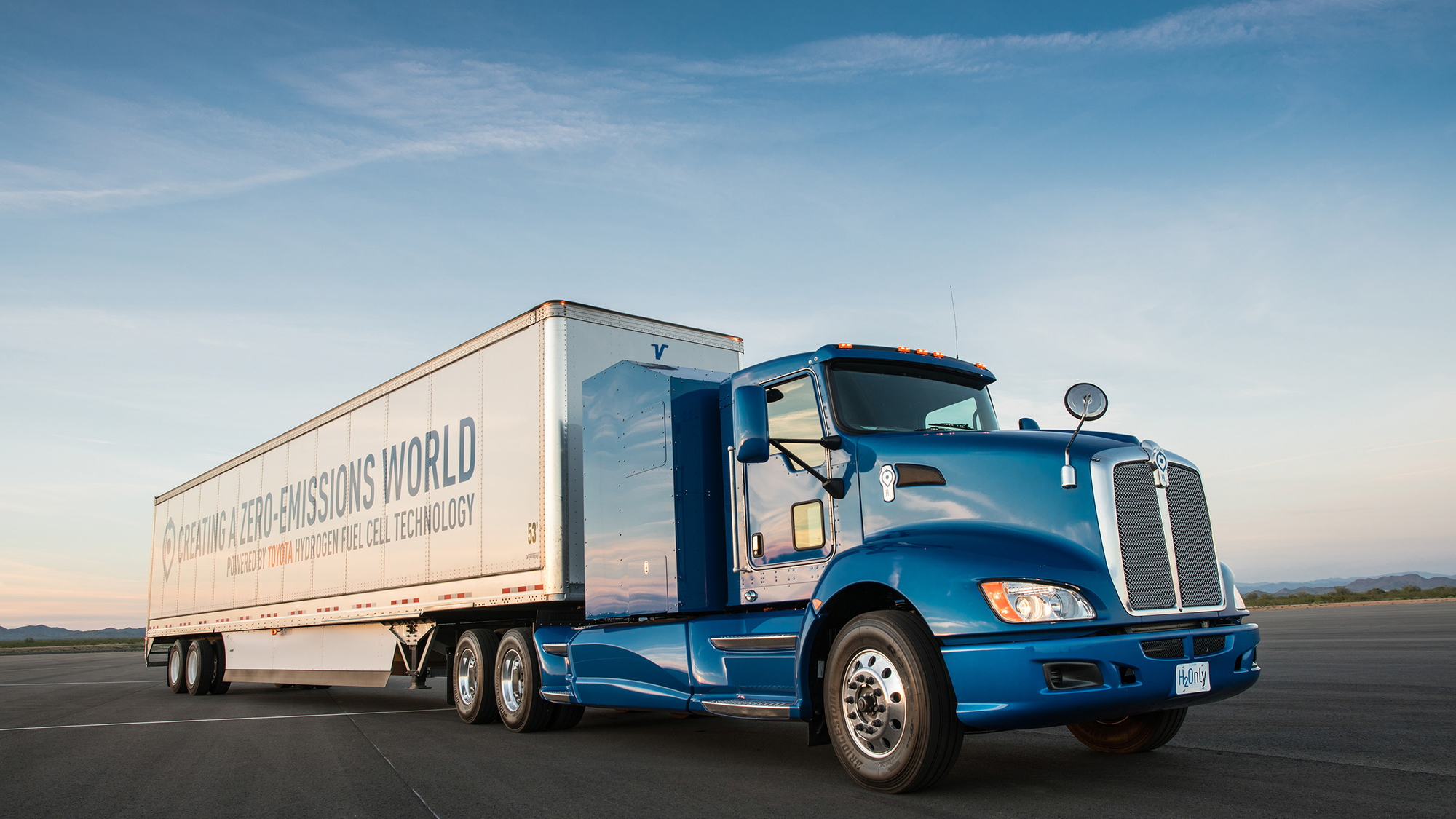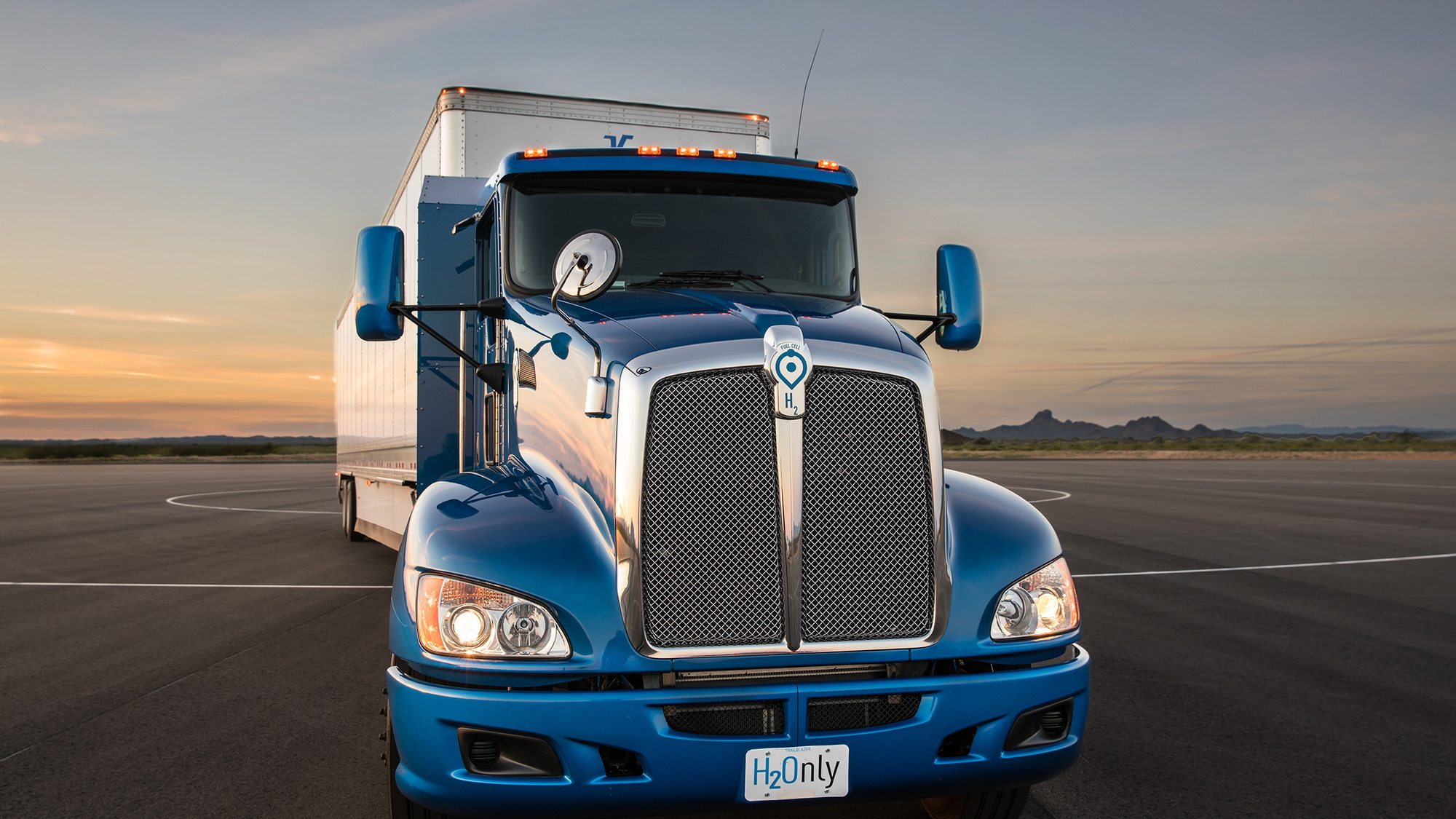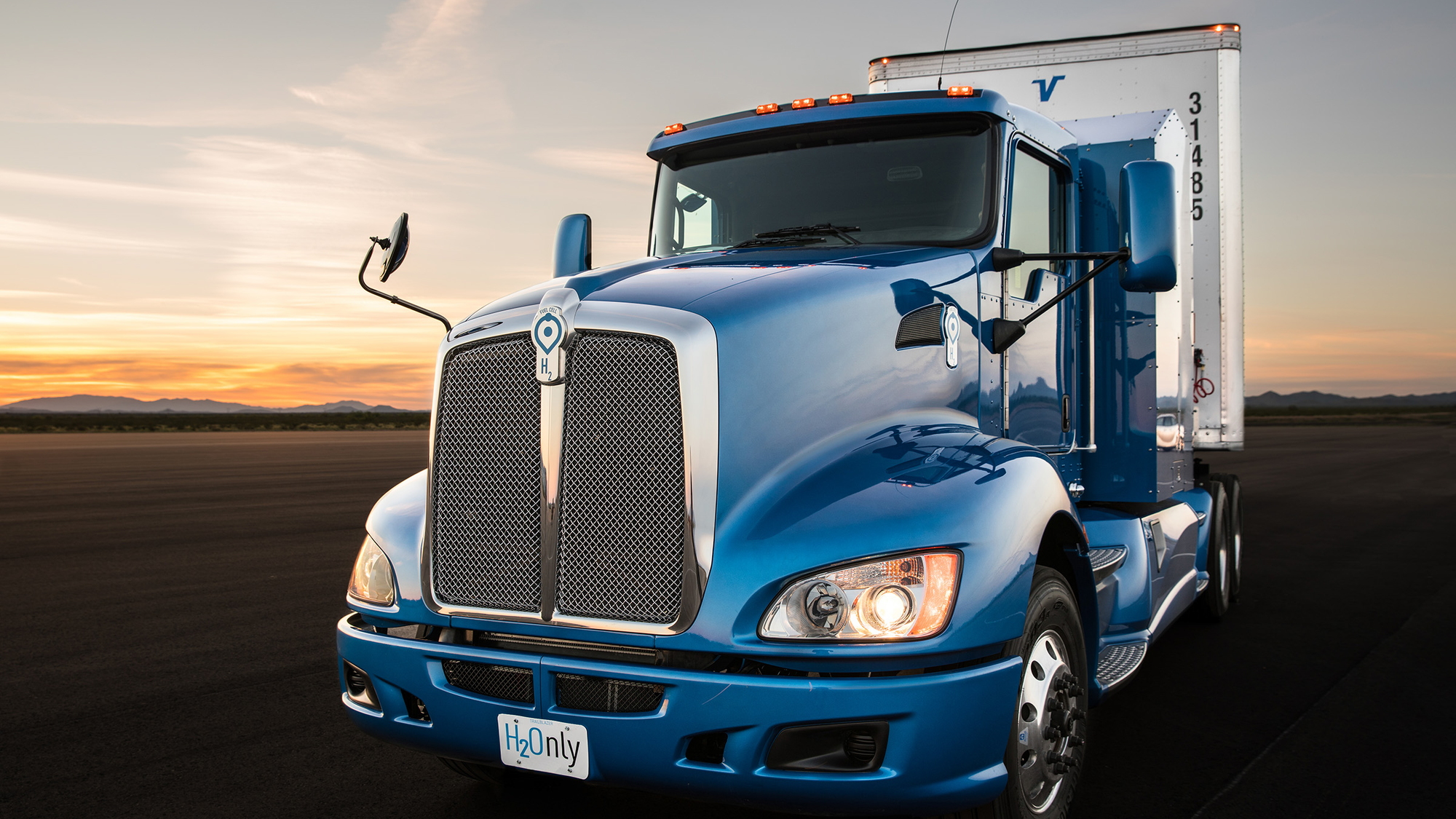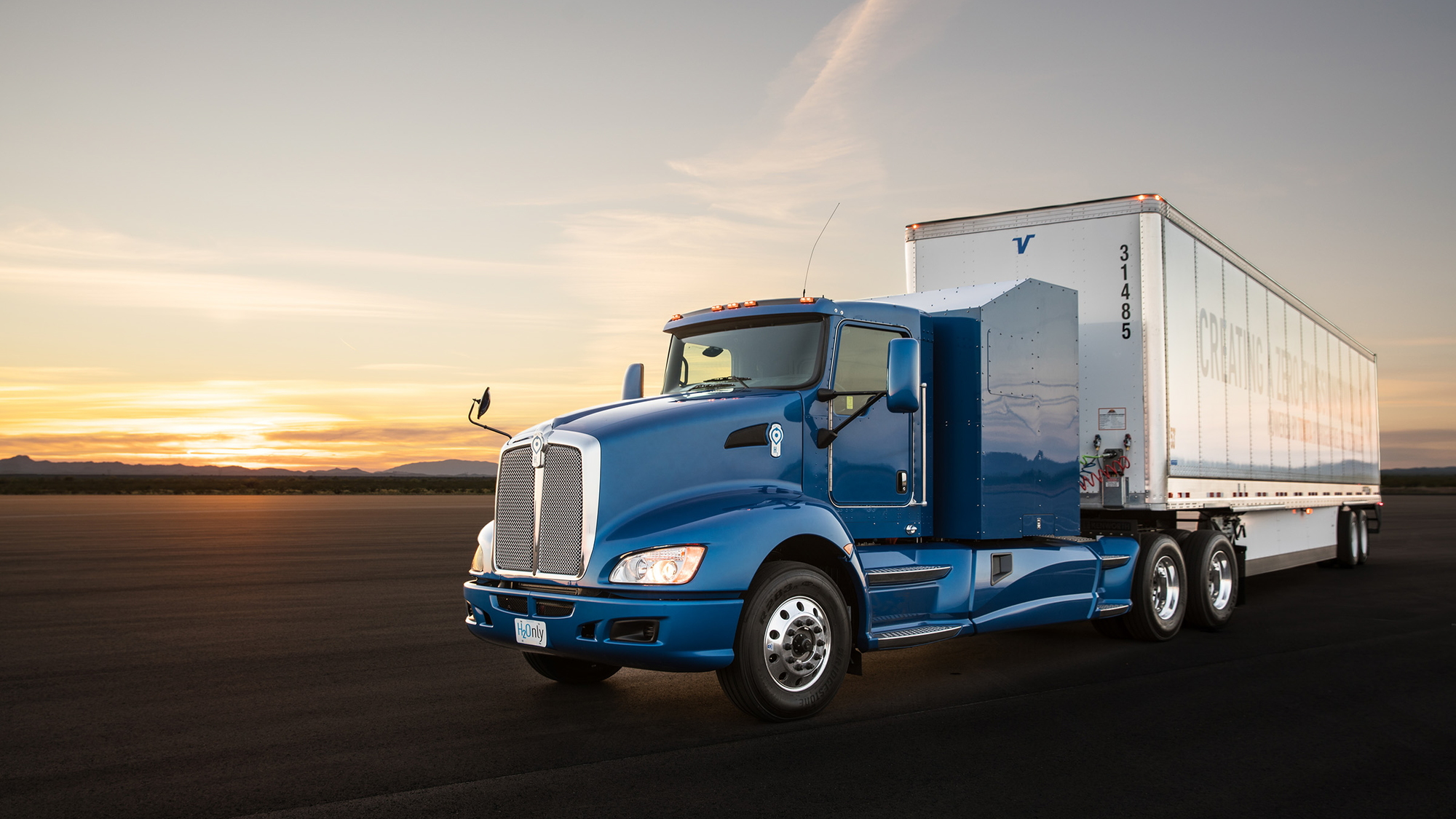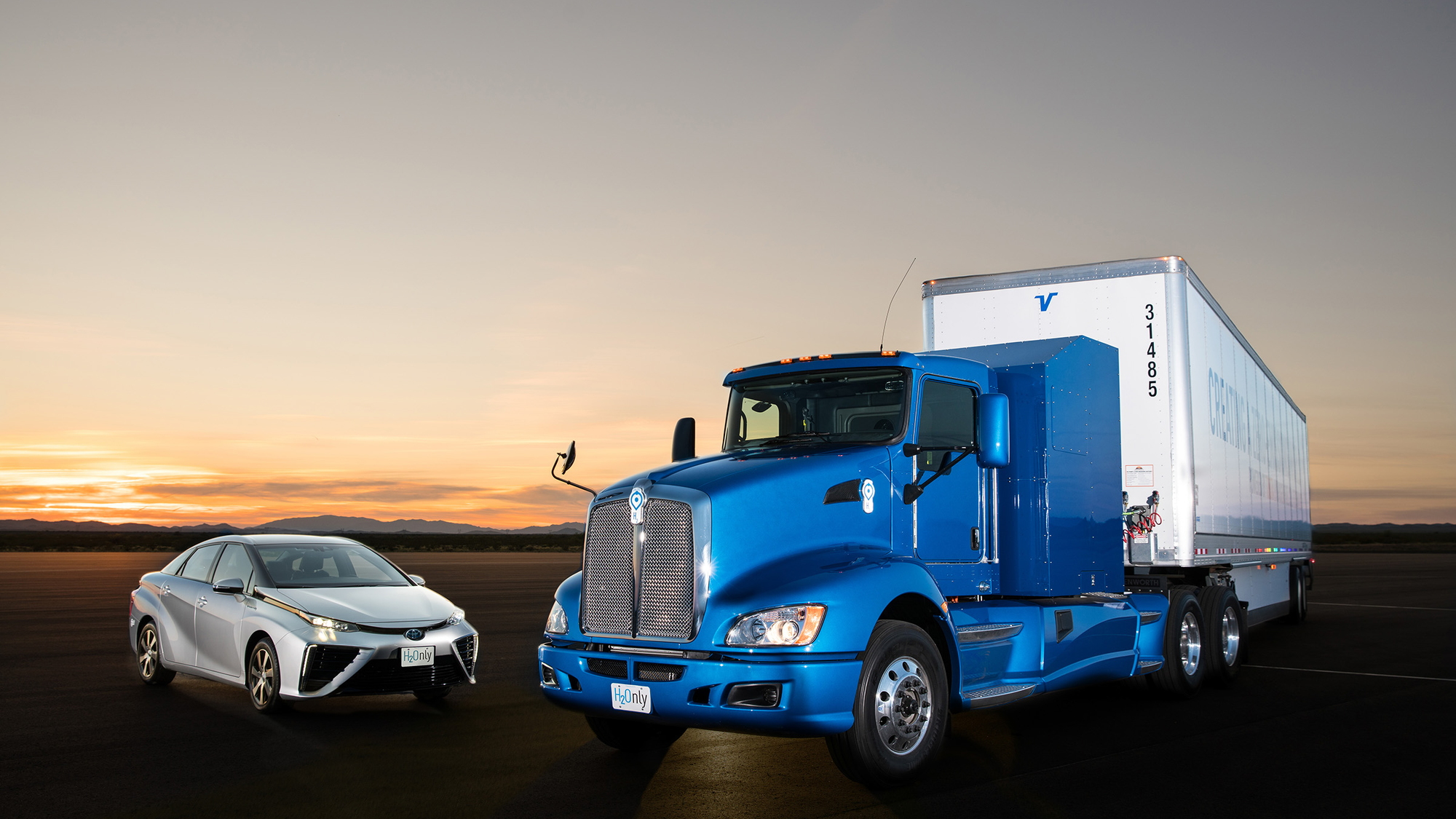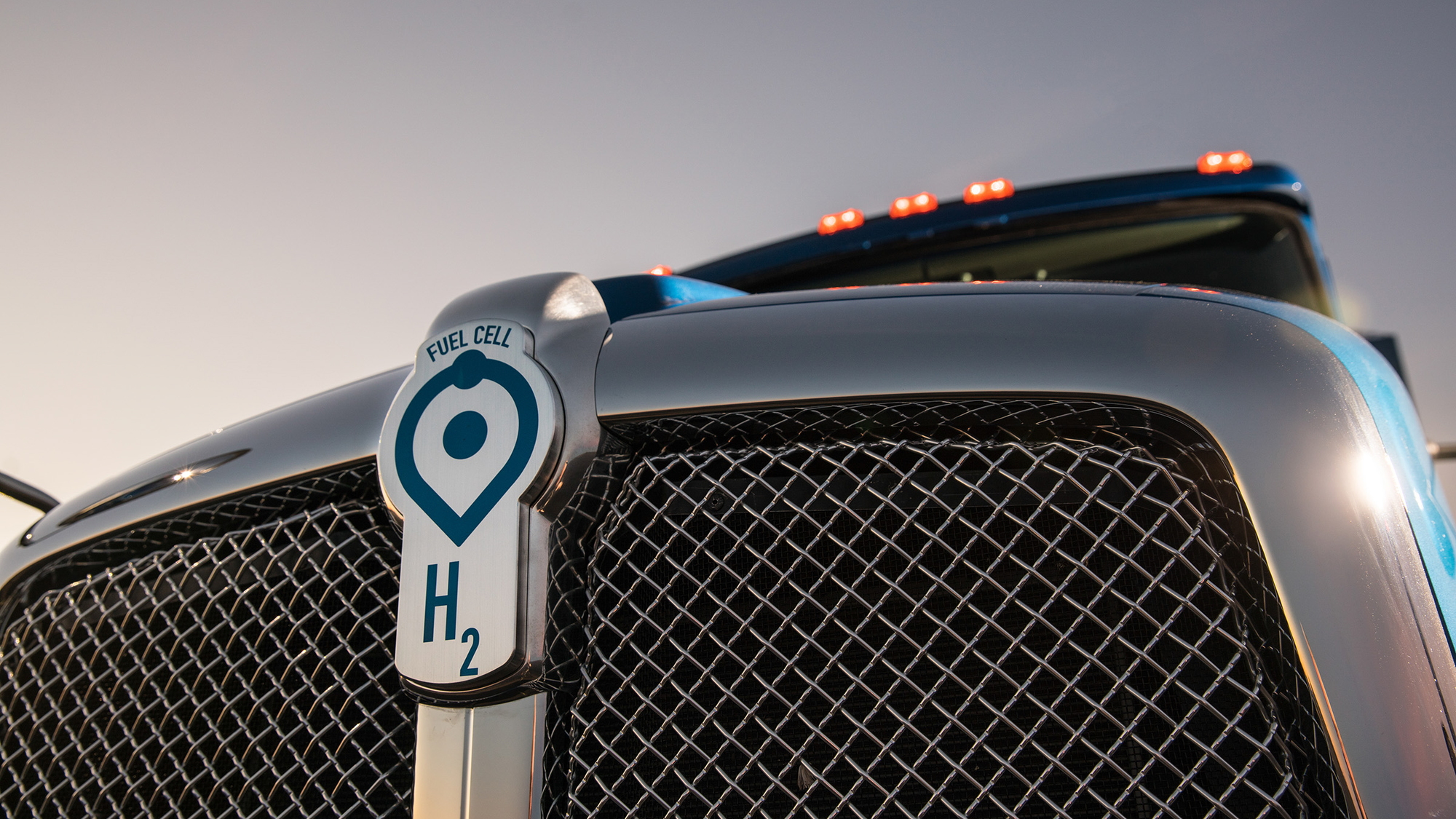Toyota announced on Thursday that it will begin testing in two California ports a hydrogen fuel-cell heavy-duty truck adapted from the Toyota Mirai's powertrain for drayage use.
Initially, Toyota is looking at how it can use hydrogen fuel-cell-powered vehicles to significantly reduce vehicle emissions in short-haul situations, such as at distribution centers.
Drayage is a logistics industry term for transporting goods between long-haul transportation modes like trains and ships.
MORE: Toyota announces Project Portal
The Japanese automaker will conduct its testing—which it has branded "Project Portal" around the Ports of Los Angeles and Long Beach in Southern California. The two ports are in the midst of a Clean Air Action Plan that has considerably cut harmful emissions over the last 12 years.
The Project Portal trucks are a lot more powerful than the Mirai four-door the automaker currently offers to the public in select markets.
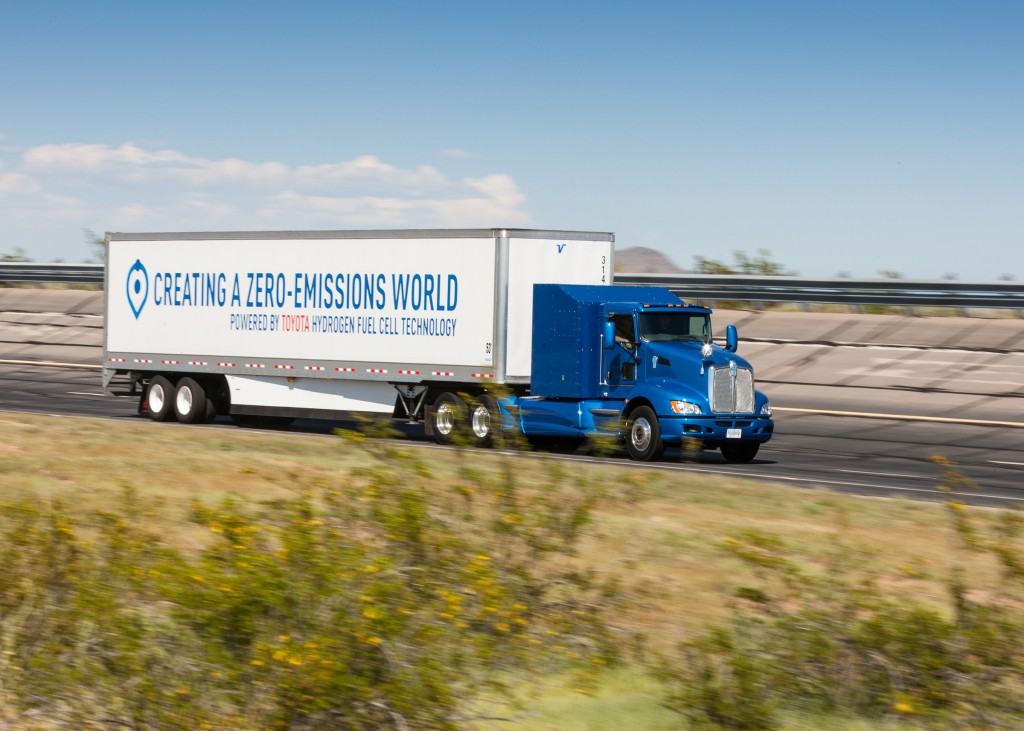
Toyota 'Project Portal' proof-of-concept hydrogen fuel-cell powered semi tractor, for Port of LA
Project Portal heavy-duty trucks use a pair of Mirai fuel-cell stacks and a 12-kilowatt-hour battery. The test vehicle cranks out over 670 horsepower and 1,325 pound-feet of torque, making considerably more powerful than the Mirai.
DON'T MISS: A cheaper Toyota Mirai is on the way
Toyota quotes an 80,000 gross combined weight capacity for the Project Portal. Despite its zero-harmful emissions, the Project Portal truck has been designed specifically for drayage use.
During the test, trucks fitted with hydrogen fuel-cell powertrains will travel about 200 miles a day, with nearly all of that within the port terminals.
Eventually, Toyota said in a statement released to members of the media that it plans to conduct longer-distance testing, but the Project Portal vehicle is limited by its roughly 200-mile range between hydrogen fill-ups.
